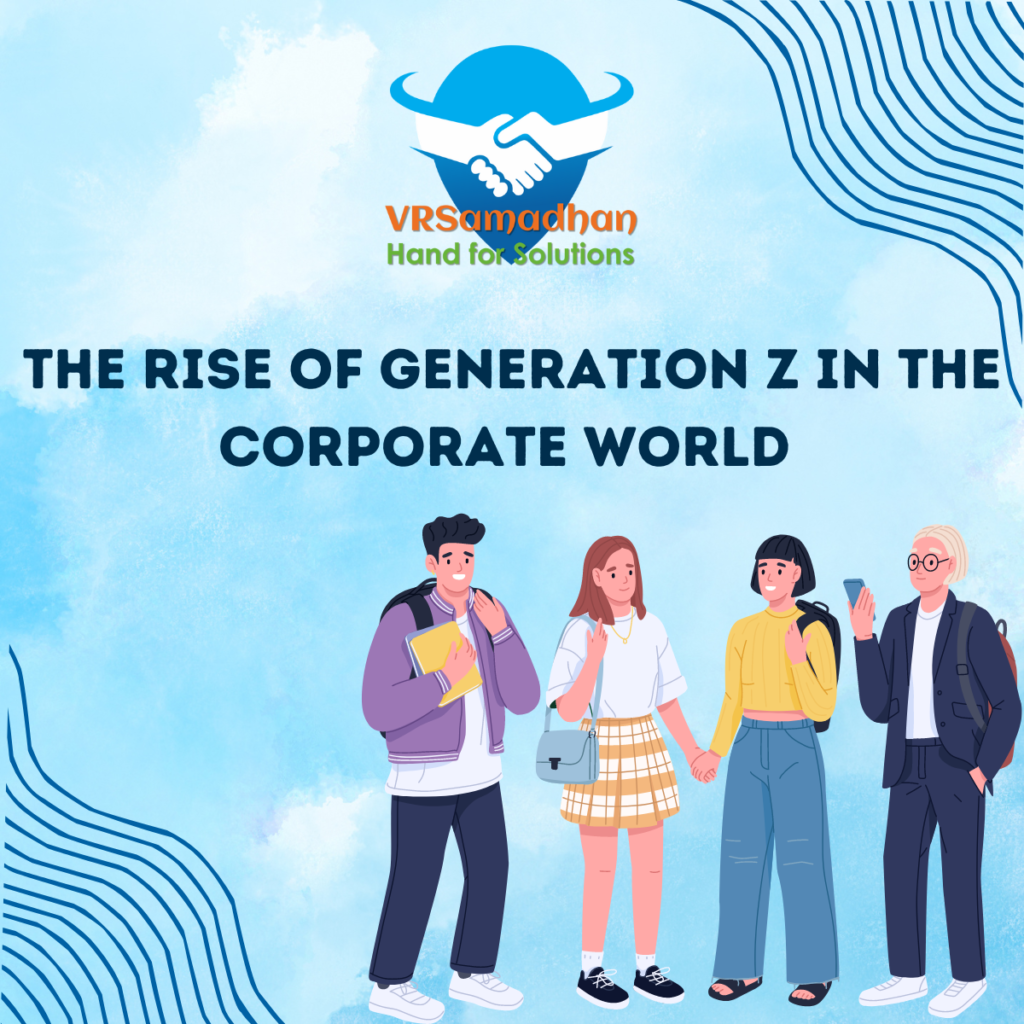Born between 1997 and 2012, Generation Z is the youngest generation to join the workforce and is already making waves in the business sector. Gen Z is set to revolutionize the way organizations function and engage with one another, thanks to their unique values, technological prowess, and drive for significant impact. This is how they are influencing the contemporary workplace.
1. Digital native and tech-savvy
Gen Z was raised in an era of social media, cell phones, and immediate access to knowledge. Being digital natives, they anticipate a smooth integration of technology in the workplace. Employers who are slow to implement technology may find it difficult to draw in and keep Gen Z talent. They like productivity and communication solutions, such as automation systems that eliminate tedious work and communication platforms like Slack.
This means for businesses: In order to establish a contemporary, effective, and stimulating work environment, organizations must invest in cutting-edge technology. Because of their IT proficiency, Gen Z is also a key asset in advancing innovation and digital transformation across industries.
2. A Clear Sense of Goals
Gen Z is distinguished by its great inclination toward labor that has a purpose. Whether it’s equality, sustainability, or social responsibility, they want their professions to reflect these ideals. They need to believe that their labor is making a difference in the world, a paycheck is insufficient for them.
This implies for businesses: To attract and keep Gen Z workers, companies need to develop strong, ethical brands. Businesses are more likely to succeed with this generation if they show a dedication to environmental sustainability and corporate social responsibility (CSR).
- DEI Concentrate
In the workplace, Gen Z demands diversity, equity, and inclusion. They are the most diverse generation to date. They appreciate inclusive settings that recognize individuality and provide equal opportunity for success. If they believe there has been inaction on DEI, they are more likely to hold employers responsible.
This implies that businesses is that they must go beyond platitudes and make genuine efforts to promote diversity and inclusion. This can entail encouraging diverse recruiting procedures, establishing secure forums for candid communication, and developing an environment where everyone is respected and heard.
- Adaptability and a balanced work-life
Work-life balance is evolving in the eyes of Generation Z. They strongly support remote, and hybrid working styles and place a high priority on flexible work schedules. Observing the COVID-19 pandemic’s impact on work culture, they have come to terms with the fact that work doesn’t always have to take place in a conventional office setting.
This means for businesses: Businesses need to embrace flexibility in order to draw in and keep Gen Z talent. Maintaining a healthy work-life balance, flexible scheduling, and remote work options will be essential to keeping this generation motivated and productive.
- A Spirit of Entrepreneurship
A large portion of Generation Z has witnessed firsthand the emergence of influencers, content creators, and startup culture. Their exposure has sparked an entrepreneurial attitude that encourages students to take the initiative and come up with new ideas. Some people might even have personal projects or side gigs going on as they start their careers in business.
This means that companies is that they should establish an atmosphere that supports intrapreneurship and innovation. This entrepreneurial energy can be harnessed by allowing employees to be free to think creatively, try out new ideas, and contribute to the expansion of the organization.
- Ongoing Education and Training
In a labor market that is changing quickly, Generation Z recognizes the need of lifelong learning. They look for chances to broaden their skill set and respect companies that make an investment in their professional growth by providing mentorship, training, and clear career routes.
This means that businesses and employers may better retain Generation Z workers by offering frequent opportunities for learning and growth. Whether technical, leadership, or industry-specific, an emphasis on skill development keeps the workforce motivated and competitive.
- Awareness of Mental Health
Compared to earlier generations, Gen Z is more forthcoming when talking about wellness and mental health. They place a high value on environments that foster mental health and well-being, and they are inclined to look for companies that provide benefits like mental health days, access to counseling, and an environment that fosters emotional well-being.
This means that: To foster a healthy work environment, companies must give mental health programs top priority. Open discussions about mental health and providing extensive support networks will draw in Generation Z and lessen burnout.
Gen Z’s impact will be revolutionary as they continue to join the workforce. Businesses will prosper if they adjust to their expectations around technology, purpose, diversity, flexibility, and mental health. Not only is this generation influencing the nature of employment in the future, but they are also pushing for positive changes in the corporate sector and in the workplace. Businesses that adopt these reforms can foster a dynamic, motivated, and purpose-driven workforce while positioning themselves to lead in a cutthroat global market.
Businesses will be able to draw in top Gen Z talent and secure long-term success in a society that is becoming more digitally and socially conscious by recognizing and adapting to these changes.

